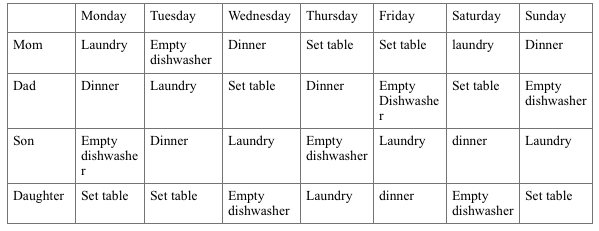
Two years ago when our son announced he was going to college nearly 1,800 miles away from home, we understood. At that time, life in our home could best be described as hell. Our 12-year-old daughter, who lands somewhere on the autism spectrum, was having regular meltdowns, sometimes multiple times a day and sometimes violent. By accepting a scholarship at the University of New Mexico in Albuquerque (UNM), our son was escaping and we let him.
After he was gone, however, things at home began to change. Our daughter responded well to therapy, progressed in school and, best of all, found a new camaraderie with her father. Everyone was happy. Then I got a phone call.
It was the end of our son’s first year at UNM and he wanted to come home. Not just for the summer — he wanted to come HOME. Even though he was doing very well scholastically, physically he was falling apart. We weren’t sure if it was Crohn’s disease, IBS, colitis, a stress ulcer or some form of food allergy. This year, after two colonoscopies, a couple of endoscopies, blood work and multiple trips to the hospital, we still haven’t figured out exactly what is the root of the problem.
So he came home and once again, our lives upended. Here are a few things we did that seemed to help everyone readjust:
It was the end of our son’s first year at college and he wanted to come home. Not just for the summer — he wanted to come HOME.
1. Set boundaries
My husband and I have always had an open, honest relationship with our son. In hindsight, I’m not sure that was such a great thing. Before he announced his return, we would Skype about once a week. We heard about classes, girlfriends, parties. While we were happy he felt comfortable sharing his life with us, we were quietly making a list of what we would and wouldn't accept when he came home. Using a lesson we learned with our daughter, we even drafted a "behavior contract” for our son. I’ll never forget the look on his face when he read through the document. He signed it, though, and handed it back — annotated. At the bottom of the page after “No drugs, no drinking” he’d added “No fun!”
2. Schedule family time
Our son had missed the renaissance the rest of us had gone through and felt disconnected. Regularly scheduled dinner time helped him acclimate. Wherever he is, whatever he’s doing, he knows that every night at 6 p.m. there's a plate just for him at our kitchen table. It's stable family time and something he can rely on.
3. Negotiate space
When my son moved away, I turned his bedroom into my writing office. Originally we thought we could share the room but when he moved back, it just didn’t feel right. He needed a spot where he could retreat, somewhere private. Since his return, I haven’t stepped foot in my former space. What do I do now? Most days I write from the living room couch and then my local coffee shop, enjoying a nice tall glass of rooibos ice tea or a mocha and, on special days, a mouth-watering brownie. It’s a sacrifice, for sure, but I’m willing to make it.
4. Set up a chore chart
Our son didn’t check into the Hilton when he returned home, and so we set up a daily chore chart. He’s responded surprisingly well for a 20-year-old. Beyond helping share the load, the chart reminds our son what it actually takes to keep a household running smoothly. We tape ours to the refrigerator in plain view. It looks something like this:

5. Keep your distance
As one would expect with my son's unresolved health questions, there are a lot of doctors’ appointments to keep track of, not to mention all the other appointments we adults get ourselves into. As his parents, we stay out of his schedule. He makes the appointment, he keeps the appointment. We offer advice when needed but managing his own schedule gives him the sense that he is indeed an adult.
6. Suggest courtesy calls
My parents never imposed curfews. Instead, they asked for me to call if I was coming home late. We’ve requested our son to do the same. It builds reliability, responsibility and respect — all good things moving forward.
The first few months after my son returned were, admittedly, rough, but we stuck with it. He is finishing his associate degree at the local community college and afterward plans to transfer to a program a little closer to home.
Personally, I’m glad for this time we have together. Thanks to all the hard work we as a family have done, we’re closer. Instead of the constant meltdowns which preceded our son’s departure, I now sit back and marvel at the relationship between my children. In fact, the other night I had to catch myself from telling them to quiet down — they were having too much fun.











